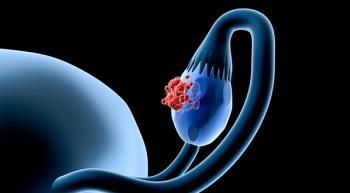
Unusual Side Effect Underscores Importance of AE Recognition
Three patients developed uveal effusion syndrome, or a buildup of fluid in the suprachoroidal space in the eye, after initiating anti-PD-1/PD-L1 monoclonal antibody therapy.
Immune checkpoint inhibitors, such as anti-PD-1/PD-L1 monoclonal antibodies, are newer agents used in the treatment of various cancers. As we learn more about these agents, additional adverse events (AEs) are identified.
Staff from the Kellogg Eye Center at the University of Michigan in Ann Arbor described 3 case reports of patients who developed uveal effusion syndrome, or a buildup of fluid in the suprachoroidal space in the eye, after initiating anti-PD-1/PD-L1 monoclonal antibody therapy.
Patient 1 was a 68-year-old African American male with metastatic adenocarcinoma of the lung, patient 2 was a 52-year-old white male with metastatic cutaneous melanoma, and patient 3 was an 85-year-old white male with metastatic cutaneous melanoma. All 3 developed uveal effusions within 1-2 months after initiating treatment with anti-PD-1/PD-L1 monoclonal antibody therapy.
Uveal effusions completely resolved in 6-12 weeks after discontinuation of treatment in 2 patients and persisted in 1 patient who continued treatment with these agents. The authors of the case report concluded that clinicians should be aware of this unusual AE from treatment observed among three patients receiving anti-PD-1 and/or PD-L1 monoclonal antibody therapy. The case series was published in
This case series of a previously unreported AE underscores the importance of the Oncology Nursing Society’s “Recognize It; Report It” campaign that launched on April 19, 2018. Nurses administering new agents, such as the anti-PD-1 and anti-PD-L1 agents, are encouraged to document and
Newsletter
Knowledge is power. Don’t miss the most recent breakthroughs in cancer care.
























































































